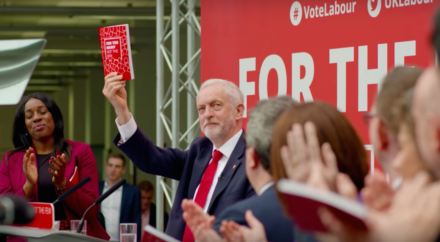
For those hoping 2019 would bring improvement in our political discourse, week one has been a real disappointment. The Twitter attacks directed at Rachel Riley in recent weeks have been nothing shy of a disgrace, and the torrent of abuse faced by Owen Jones and Anna Soubry on College Green by rabid protestors has made for equally depressing viewing.
Our politics is broken. This is the result of a European referendum that has thrown up more questions than answers and continues to bitterly divide our society. An austerity agenda that has pitted the poorest and most vulnerable against the privileged and wealthy. An immigration system that tells people born in Britain that they’re unwelcome, and betrays a generation of migrants who helped rebuild Britain after the war. As a natural consequence of our broken politics, our political discourse is in a total state of despair. The former will take longer to change; the latter we can all address now.
As ever in modern Britain, social media has a lot to answer for. Nuanced and considered political debate was never built for 140 characters or less. Quippy put-downs, four-letter slurs and disposable soundbites are much better suited to the format offered by Twitter. Take the case of Rachel Riley, one of the most recognisable and popular British Jews on television. She recently stuck her head above the parapet to express her deep concerns about antisemitism on the left, calling on the Labour Party to take swifter and stiffer action on the offenders. Instead of the left uniting behind Riley and redoubling our efforts to stamp antisemitism out of our party and out of our society, a pile-on directed at Riley kicked off almost instantly. She has since faced daily accusations, abuse, and even been the target of antisemitism herself.
I feel I’m covering familiar territory here, but in anticipation of the inevitable backlash that is likely to ensue, let me clarify a couple of things. The Twitter trolls attacking Riley don’t represent the left that I or anyone I consider a comrade identifies with – but they launch their verbal grenades from pro-Corbyn, pro-Labour accounts and this cannot be overlooked. If we are to regain the trust of the Jewish community, we must take this seriously and address it. Twitter itself has a responsibility to be more robust in suspending these abusive accounts, and the Labour Party ought to consider asking members to provide their Twitter handles in order to identify which of the trolls can be dealt with internally. Finally, a prominent Jewish personality expressing deep concern about antisemitism is not a political assault on Corbyn. We need to get out of this bunker mentality and stand in solidarity with our Jewish brothers and sisters.
It used to be the case that much of this vile abuse was limited to Twitter, where offenders can hide behind fake names and egg profile pictures. This is sadly no longer the case. The abuse faced by Jones and Soubry this week has been particularly disturbing, as some of the slurs and sentiments have echoed those used by the terrorist who killed Jo Cox in 2016. Since then, a terrorist targeting Muslims in London has said he also hoped to kill Jeremy Corbyn and Sadiq Khan, while female Labour MPs have faced rape and death threats, and Tory rebels accusations of sabotage and treason.
Here, the wider British press has a role to play. Some of the abuse levelled at Tory rebels has been lifted verbatim from Telegraph front page splashes, whilst the sick irony of the Daily Mail condemning the College Green protestors is clearly lost on the editorial team, who have been distributing bile and bluster to the public for decades. If the media don’t want to see a continued rise in hate crime and abuse, they must stop escalating the rhetoric and contributing to the fervour in our society with histrionic headlines and victim-blaming op-eds.
We’ve lost basic human decency and civility in the way we converse in our politics. We can hold opposite views without hating each other, we can disagree without insulting each other, and we can hold different values without shouting each other down. Twitter and social media companies must get tougher on trolls, bots and abusers. Our political parties must consider new technological methods to exclude perpetrators from their umbrellas. The press must start trying to bring us back together.
Finally, we as individuals have a responsibility to be better. Corbynites, practice the ‘kinder, gentler politics’ Jeremy espouses and steer clear of personal attacks. FBPErs, practice the EU ideals of tolerance and cooperation you value. And to all of us, left and right, let’s make 2019 the year we take hate out of our politics.
Nathan Phillips was south east coordinator for both Jeremy Corbyn’s Labour leadership campaigns.




More from LabourList
‘If Labour is serious about upskilling Britain, it must mobilise local businesses’
Stella Tsantekidou column: ‘What are we to make of the Labour Together scandal?’
‘Unitarisation risks weakening local democracy unless communities are put in the driving seat’